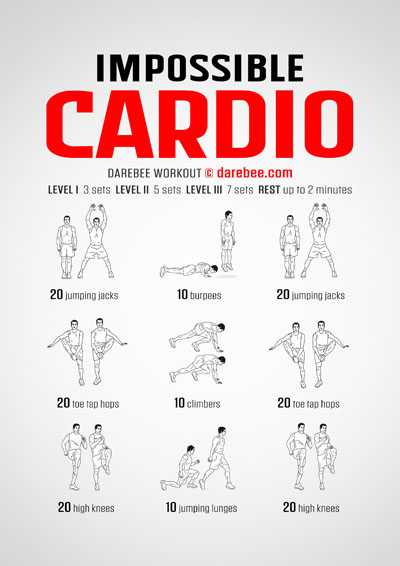Blitz News Digest
Stay updated with the latest trends and insights.
Cardio Conundrum: Love it or Leave it?
Discover the truth about cardio workouts! Are they a love affair or a fitness nightmare? Find out what’s best for your workout routine!
The Benefits of Cardio: Why You Might Love It
Cardio workouts, which include activities like running, cycling, and swimming, offer numerous health benefits that can significantly enhance your well-being. One of the primary advantages is improved cardiovascular health, as these exercises strengthen your heart and lungs, leading to better circulation and increased endurance. Regularly engaging in cardio can help reduce the risk of chronic diseases such as heart disease, diabetes, and obesity. Additionally, cardio workouts are excellent for weight management, burning calories and fat effectively.
Beyond physical health, the mental benefits of cardio are equally compelling. Engaging in consistent aerobic exercise has been shown to reduce stress and anxiety levels, thanks to the release of endorphins, often referred to as the ‘feel-good’ hormones. Many people also experience improved sleep patterns and increased cognitive function, making cardio a fantastic way to boost overall mental clarity and productivity. So whether you're looking to get fit or simply elevate your mood, incorporating cardio into your routine might just be the change you need.

Is Cardio Necessary for Weight Loss? Debunking the Myths
Is cardio necessary for weight loss? This question is often surrounded by various myths and misconceptions. Many believe that engaging in cardiovascular exercises is the only way to shed those extra pounds. However, while cardio can certainly aid in burning calories, it is not the be-all and end-all of weight loss. Factors such as diet, strength training, and overall lifestyle play significant roles in achieving a healthy weight. By focusing solely on cardio, individuals may overlook other effective methods, like resistance training, which can help build muscle and increase metabolic rate, ultimately leading to greater fat loss.
One common myth is that you must spend hours on the treadmill or bike to see results. In reality, the quality of your workouts often trumps quantity. Incorporating high-intensity interval training (HIIT) or strength workouts can lead to effective weight loss in shorter amounts of time. Moreover, weight loss is fundamentally about creating a calorie deficit; this can be achieved through proper nutrition and a mix of physical activities that suit your preferences and lifestyle. In conclusion, while cardio is beneficial, it is not strictly necessary for weight loss. A balanced approach is key to achieving sustainable results.
Cardio vs. Strength Training: Which Is Better for Your Fitness Goals?
Cardio and strength training are two foundational components of fitness, each offering unique benefits that cater to different goals. Cardio exercises, such as running, cycling, or swimming, primarily target your cardiovascular system, improving heart health, increasing endurance, and aiding in weight loss. For those aiming to shed pounds or enhance stamina, incorporating regular cardio workouts can be crucial. On the other hand, strength training, which includes weight lifting and resistance exercises, is essential for building muscle mass, enhancing strength, and boosting metabolism. This type of training is particularly beneficial for those looking to improve their overall body composition and increase their functional strength.
When it comes to deciding between cardio and strength training, it ultimately depends on your individual fitness goals. If your primary objective is to improve cardiovascular endurance or lose weight, prioritizing cardio may be the best route. However, if you seek to increase strength or build muscle, incorporating a regular strength training regimen is crucial. Many fitness experts recommend a balanced approach that includes both modalities, as this can lead to optimal health benefits. A segment of each week dedicated to both cardio and strength training can help enhance your fitness level, provide variety, and decrease the risk of injury through improved muscle stability and coordination.